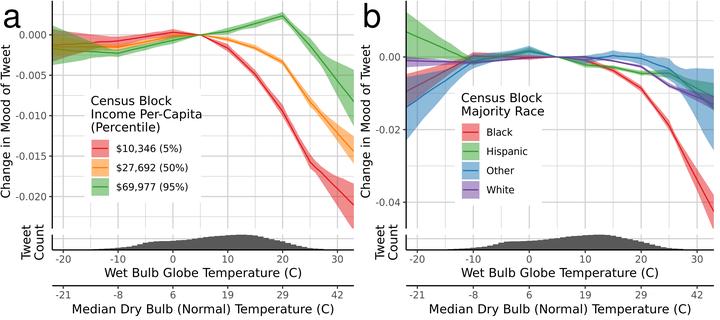Fine-scale Data Reveals Neighborhood Inequalities In Effects of Heat on Expressed Mood

Abstract
Higher temperatures associated with climate change are expected to have major impacts on human mental health, and previous work has found strong associations between heat and mental well-being. However, these studies typically use data reported at the city or county level, and, to date, have found no difference in vulnerability based on income or race. We therefore use expressed mood in a quarter of a billion geolocated tweets as a proxy for mental health status available at fine spatial and temporal scales, and find stark differences in the effects of heat depending on neighborhood characteristics. Here we show that increased temperatures worsen expressed mood in all areas, but that this effect is much stronger in poor and Black neighborhoods. We also find that the effect of heat on expressed mood is greatest in the early morning, supporting the hypothesis that heat affects mental health through a sleep quality pathway. This paper presents the first evidence of neighborhood heterogeneity in the vulnerability of mental health to heat.